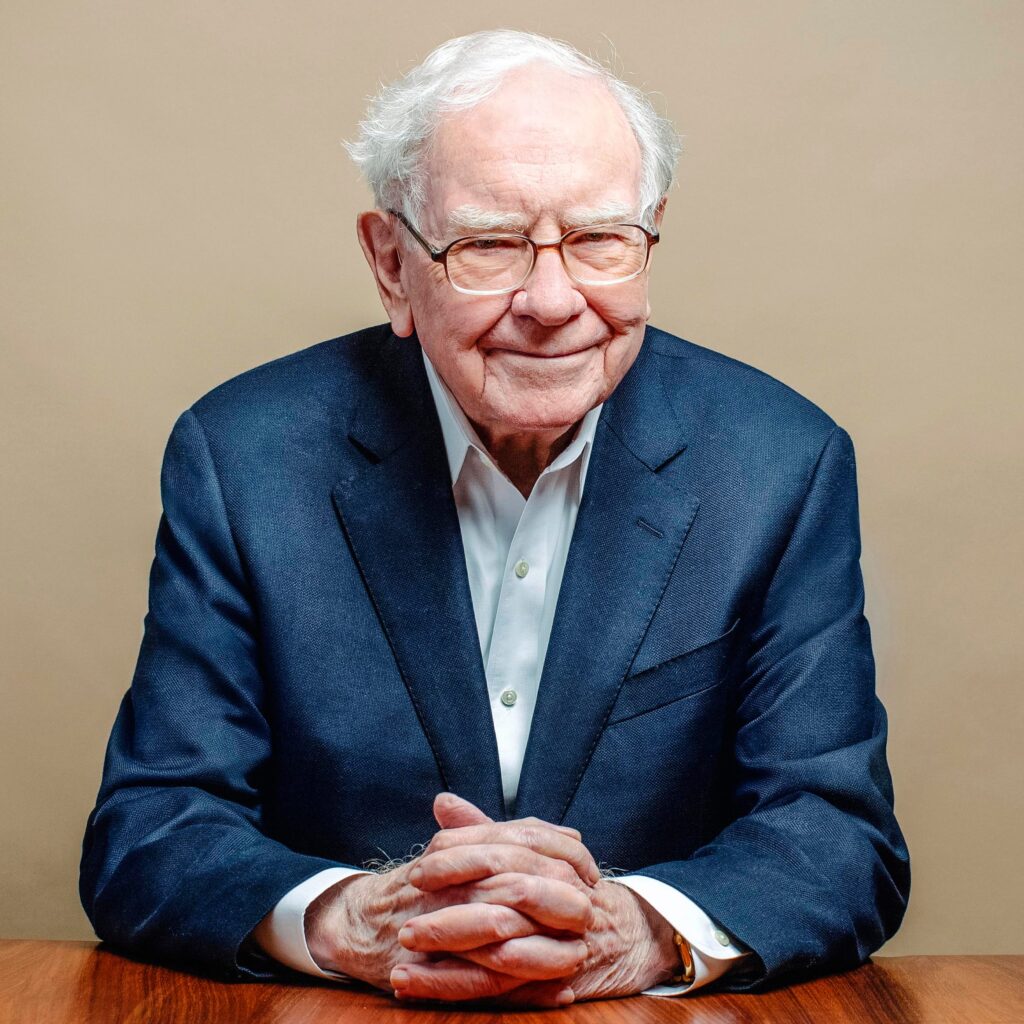Investing Like Warren Buffett: Buying Businesses on Value, not Gambling on Prices

Dr. Joel J. Napeñas
8 minute read
I recently spoke to a friend about investing in real estate, and specifically in syndications. They said it was ‘too risky’ for them when compared to publicly traded stocks, because they did not have the ‘control’ to buy and sell as readily. It’s true that whether it is investing passively or or buying investment properties yourself, you don’t have the liquidity to enter and exit that trade at the click of a button. However it is that lack of liquidity that makes them less risky investments.

Warren Buffett is one of the greatest investors of all time. From 1965 through the end of 2021, Berkshire Hathaway shares have generated a compounded annual return of 20.1% against 10.5% for the S&P 500. Most of Berkshire’s outperformance versus the index came earlier in Buffett’s tenure as its CEO when Buffett, now 91, racked up huge gains in the stock market. For that he has always been known as one of the greatest ‘stock pickers.’
Warren Buffett does not ‘pick stocks’… he invests in businesses. He takes the time to understand the businesses’ fundamentals, by intimately looking at their business plan, their financials, how they stack up against the competition in their industry (the competitive ‘moat’), the people running the companies, and their past, current and projected earnings. Based on these, he determines what the intrinsic value of the business is. Then if he sees an opportunity to buy some or all shares of a company at a reasonable price based on market conditions in comparison to what he values the business, he then invests. This is what they mean when they say that Warren Buffett is a ‘value investor,’ as he buys businesses based on their value, not on their price.
A great example of this is Occidental Petroleum, which he recently purchased 92.1 million shares of after having intimately studied the company for decades. A conversation with the company’s CEO triggered his decision to make that big transaction.

Stock traders are different from true investors like Warren Buffett. They may have a superficial or no understanding of the company (or industry sector) whose stock they are trading, but they are mostly trying to handicap how the market will influence stock prices. Because publicly traded stocks are liquid and so easily bought and sold, there is much more price volatility. Factors such as uncertainty about the economy, manipulations by groups of investors (i.e.: the “Wall Street Bets” crowd) and interest rates are what drive these prices up and down. They are simply buying based on speculation making bets on short (sometime seconds) and long term price movements, rather than cash flow. Often, the actual stock price has no relation to business fundamentals and intrinsic value.
Whenever there are market manias or bubbles, the natural tendency for the average stock trader is to buy when stocks are overpriced. As they see individual companies or market prices continue to go up, they feel that they must ride the wave out of fear of missing out (FOMO). They buy high and sell low.

Meanwhile, Warren Buffett waits for opportunities like market crashes to purchase businesses at fair or bargain prices relative to their value. Now the average investor thinks they can do this also, as they try to ‘time the market.’ However most who take that approach, do not know the intrinsic value of what they’re trying to buy, and even if they did they are paralyzed by the fear by the rest of the market and are unable to actually invest in those opportune times. Rather than ‘FOMO’, they go through ‘ROMO’ (reality of missing out).
Applying Warren Buffett principles to Real Estate Investing
A friend recently told me a story about one of their neighbors. The neighbor spent a couple hundred thousand dollars doing various upgrades on their home, in a neighborhood where the average price is in the $700-$800 thousands. That neighbor told him that he was certain that he would be able to sell his home for a million dollars in a couple of years. How can he be so sure of that? It is simply a bet that the last couple of years of exorbitant appreciation in home prices will continue on. Yet, like the stock picker that just hopes that prices continue to climb, the average real estate owner and investor does the same.

If you are to succeed in real estate investing, you must look at the property you are buying or investing in in the same way that Warren Buffett looks at companies… as a business. You need to ask the following questions:
- How has it performed financially?
- Does it cash flow? If it doesn’t, are there opportunities to make it cash flow reliably?
- What about the conditions of the market or neighborhood that the property is in?
- Who is managing the property, how well do you know them and what is their track record?
If it is a personal residence or a smaller property there is no way to value it based on cash flow, as their values are solely at the mercy of market conditions.
Most who do not succeed or run into difficulties are not truly investing, they are speculating. They are buying or investing in properties simply in the hopes that it will appreciate and that they can sell it for more in the future. Home flipping is not much different than day trading. It is the premise of those that look at their personal home or that second or vacation home as an ‘investment.’ Even many who invest, operate and own investment properties run into problems because they treat that property as a ‘hobby’ and not a ‘business.’
Investing in Real Estate Syndications and Funds
Prolific real estate expert and syndicator Neal Bawa says that the average performance of a passive investment in a real estate syndication outperforms the returns of an average active real estate investor who owns and manages their own properties.

When you are an investor in a syndication or a fund, you are not just investing in a property, you are investing in a business. Like a business, the value of a larger property directly correlates to the cash flow of the property. Warren Buffett’s principles are employed in the investment in multifamily apartment buildings. Find a cash flowing property, in a solid market, that has a good ‘moat’, that has excellent management, and buy it at a fair or bargain price. Unlike publicly traded equities, bargain prices can still be found in hot markets because such assets are not so readily tradable nor available to the general public market.
You are presented with a full business plan, showing how much the property was purchased for, how it has performed in the past, how well it stacks up against the competition, what the prospects for future earnings are, and who is running the business and their track record. Just as Warren Buffett had a relationship with the CEO of Occidental Petroleum, you have direct access to the sponsors that are overseeing the operations of these apartments.
Larger multifamily properties, while subject to market conditions, are not so readily traded as stocks and smaller real estate properties, therefore their prices are not so volatile. As a result, their prices directly reflect their intrinsic values as businesses, and not just the whims of the market. Moreover, a good business plan by a sponsorship team always factors in or stress tests for market valuation drops.
Conclusions
Warren Buffett is a prolific investor because he deeply understands the businesses or assets that he invests in, and is able to assign intrinsic values to them. The average investor puts their money or entrusts a financial advisor to disperse their funds into assets in which they have no understanding about. They simply hope that whatever they invest in is worth more later sometime in the future.
The same can be said for most who invest in real estate. In both cases, they simply hope and pray that the market continues to increase the price of whatever asset they invest in without really knowing how the assets are truly valued. That is the difference between gambling and speculation versus true investing.
The core of your portfolio should be Investing in Businesses for their intrinsic value. Do not speculate solely based price fluctuations. Understand what you are investing your hard earned money into and how it is valued.
Your time, hard work and money are too valuable to simply gamble on.
Do you want to learn more about how to value a property and how market conditions affect it so you can understand where your investment dollars are going? Speak with us directly.
Other related articles:
Investing For Appreciation versus Cash Flow
10 Signs of a Real Estate Bubble
Investing in Real Estate versus Stocks
Dr. Napeñas, a practicing academic dental specialist in Oral Medicine, is founder and managing partner of 5DH Partners, a real estate investing firm that educates and helps dentists and other professionals generate passive income and build wealth through investing in real estate.
Want to learn more about investing in real estate without being a landlord?
Subscribe to our email newsletter here.
Set up a time to talk with us personally here.
Download a copy of our free e-book here to learn how dentists and other professionals can replace their income by passively investing in real estate.
Visit our Facebook and LinkedIn page, or join our newsletter mailing list for articles, updates and opportunities.